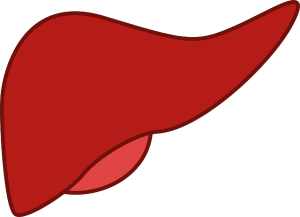 Binge eating (also known as bulimia nervosa) is a disorder that primarily affects younger women or women in their 20’s and early 30’s. The practice involves eating large quantities of food, followed by purging.
Binge eating (also known as bulimia nervosa) is a disorder that primarily affects younger women or women in their 20’s and early 30’s. The practice involves eating large quantities of food, followed by purging.
The contents in the stomach are purged by forcing up food by self-induced vomiting or by the use of chemical laxatives to get rid of stomach contents. Diuretics are used to rid the body of water weight or bloat. Prolonged use of laxatives can result in a dependency.
Looking at Food as a Way to Deal with an Upset
When women do not eat for nutritional reasons but consume food for emotional purposes, eating disorders, such as bingeing and purging can develop. For example, some women may consume a gallon of ice cream or eat a whole cake if they experience a bad day at work. These excessive responses are meant to soothe pain and depression.
Comfort Foods
Foods, such as ice cream, cake, or dessert-type foods, are thought of as “comfort foods.” However, these comfort foods are also calorically dense and void of nutrients, all of which means they can contribute to weight gain. That is when binge eating can start being a problem.
How Eating Gets Out of Control
Women can get caught up in the idea of eating food for “comfort” but may also feel guilty about consuming the calories. After a while, food stops being recognized for the fuel and nutrition it provides but is considered, in a sense, as a kind of mood stabilizer. However, when food is consumed in this manner, a pattern of eating develops that is anything but stable.
When food is used for emotional support, a cycle develops that involves eating large quantities of “comfort food” followed by purging. Therefore, the disorder becomes a problem from both a psychological and health standpoint. So, if you tend to binge eat from time to time, you need to start thinking about food in a different way.
Use Food to Stay Healthy, Not to Cure an Upset
Again, food is a source of fuel and nutrition. Therefore, to overcome binge eating, you need to start eating purely for reasons of nutrition and health. Develop an eating routine that can be incorporated with an exercise regimen. Don’t use the consumption of food to alleviate depression or comfort an emotional hurt.
Learn What Emotional Triggers Lead to a Binge Eating Episode
When you start thinking about food differently, it also means that you are going to have to think of new methods to reduce your level of stress as well as manage your emotions so you can handle life’s upsets. You can start getting a better hold of any food disorder by keeping a food diary. By writing down what you consume and when you eat, you can learn what specific events may trigger a binge eating episode or activity.
An Increased Level of Stress and Anxiety that Can Lead One to Binge Eat
In order to overcome stress and anxiety and to handle emotional upset, you need to replace eating “comfort” food with positive relaxation or a stress-relieving activity. Exercises such as yoga and walking help relieve stress, as does the practice of meditation. If it can be facilitated, it does not even hurt to take a 15-minute nap in the afternoon.
Being Cognizant of How You Handle Stress
Be cognizant of your emotions and how you handle stress. Stress can raise your blood sugar levels to a point that the calories in food are not optimally metabolized. Binge eating can cause a series of health issues to develop too. Therefore, the sooner you start changing the way you handle stress and upset the better it will be for your physical health too.
Health Issues that Result from Bingeing and Purging
• Laxative dependence
• Erosion of the tooth enamel which comes about from vomiting up stomach acids
• Heart rhythm problems
• Increased blood sugar counts – all which can result in problems with the metabolization of calories or more serious conditions, such as pre-diabetes
• Problems with the digestive tract, including unresponsive bowel
• Potassium depletion (from laxative use)
• Dehydration
• Electrolyte imbalances (from taking diuretics)
• Esophageal tears (from vomiting)
You cannot continue to binge eat without experiencing certain psychological or physical problems. Therefore, it is good to address the crux of the problem first. Eat food to maintain a healthy balance in your life, not as a way to deal with upset. Once you learn how to deal with your emotions or upset more constructively, binge eating will stop being an issue too. Seek professional help, as this problem often involves deep seeded issues that need to be addressed.





















Add comment